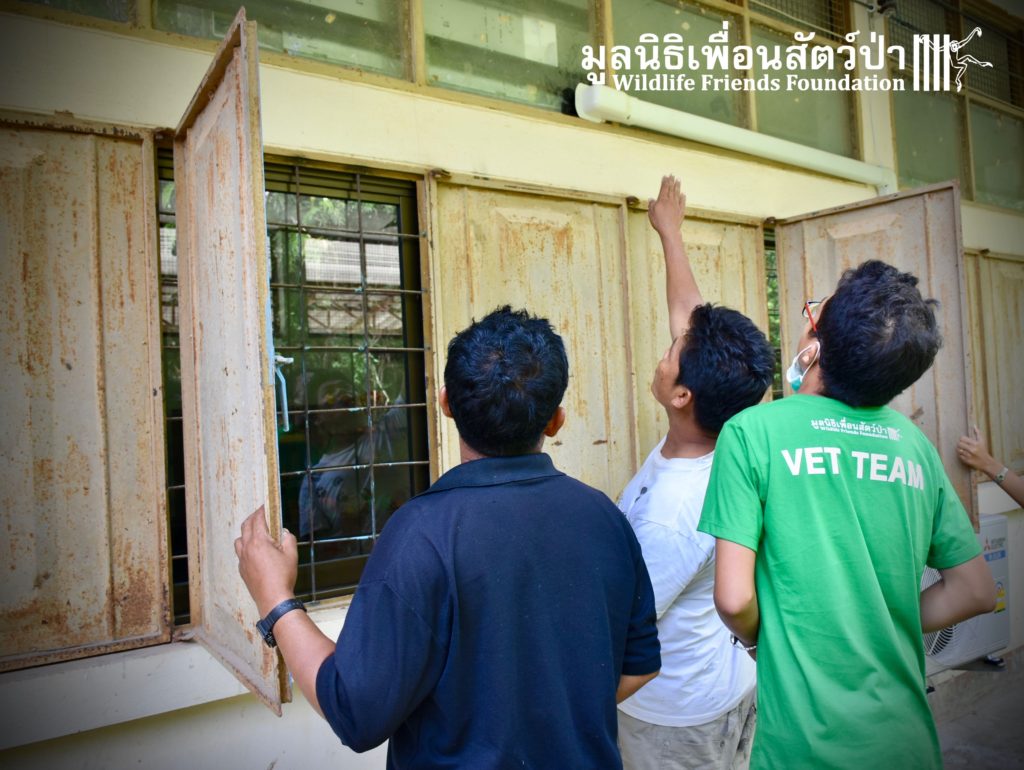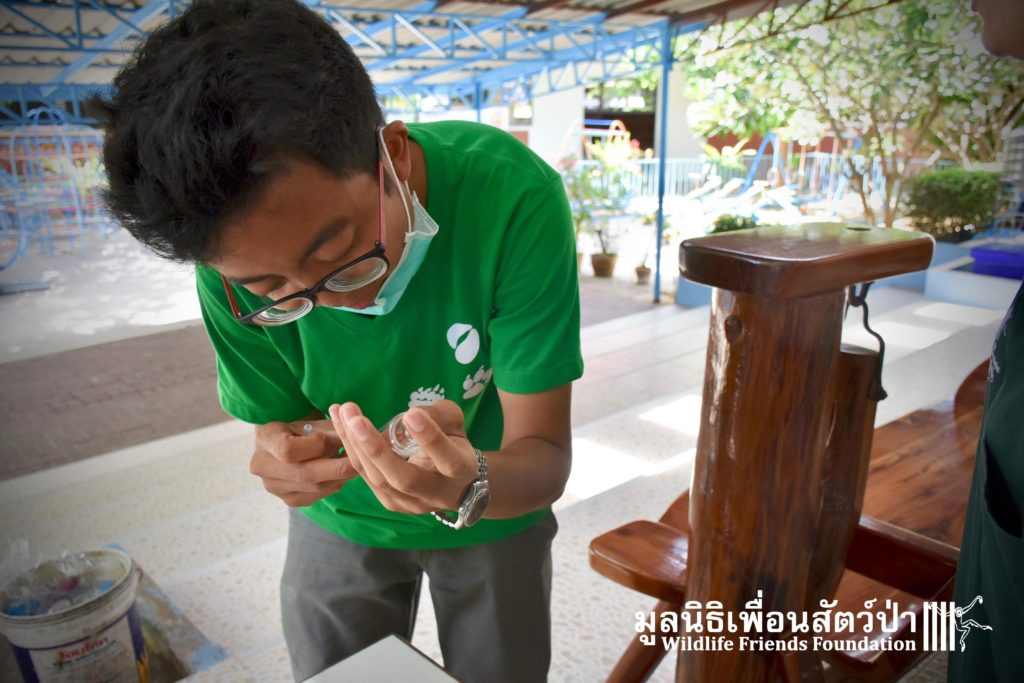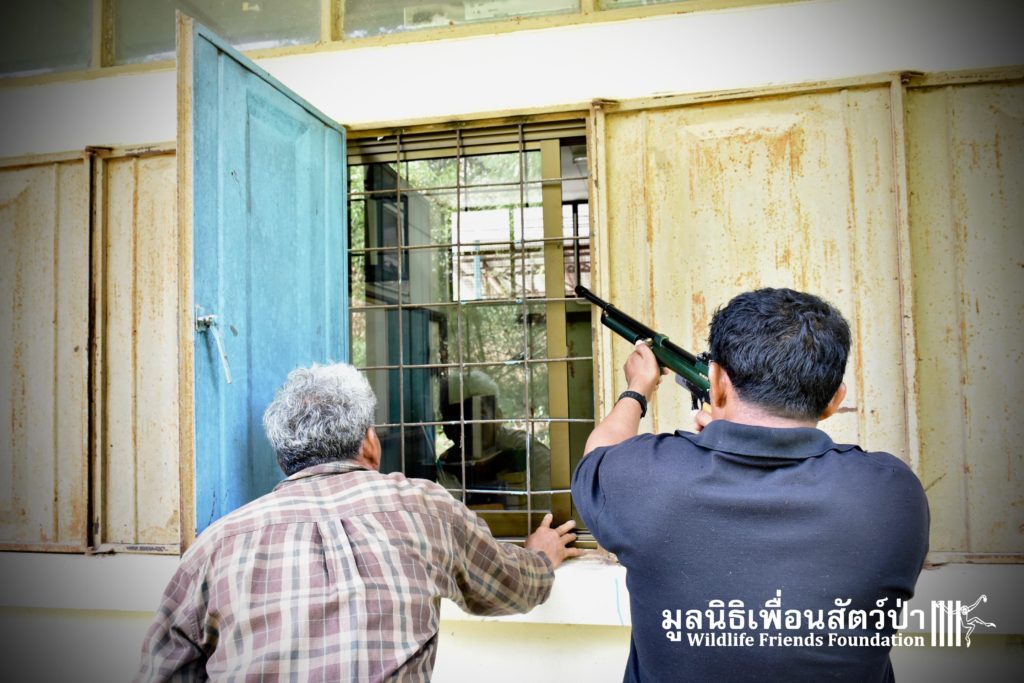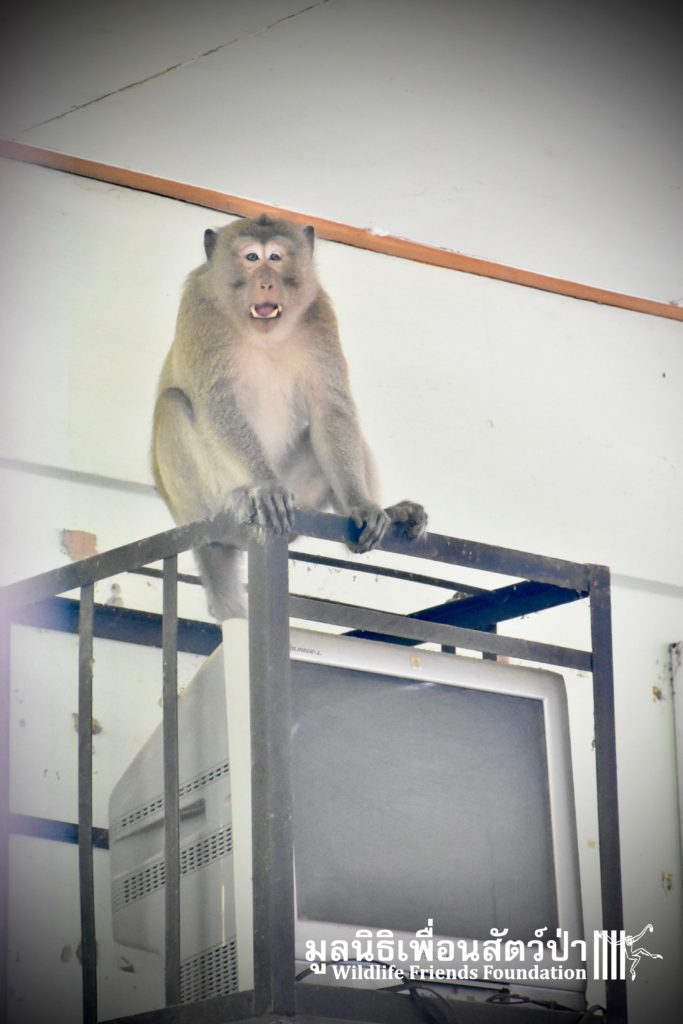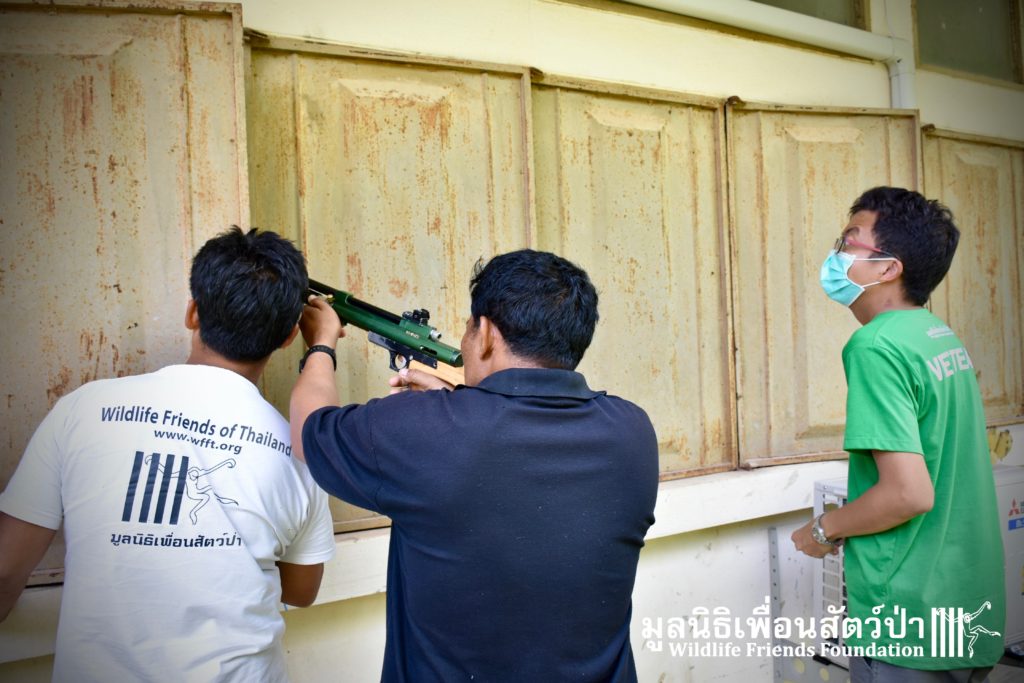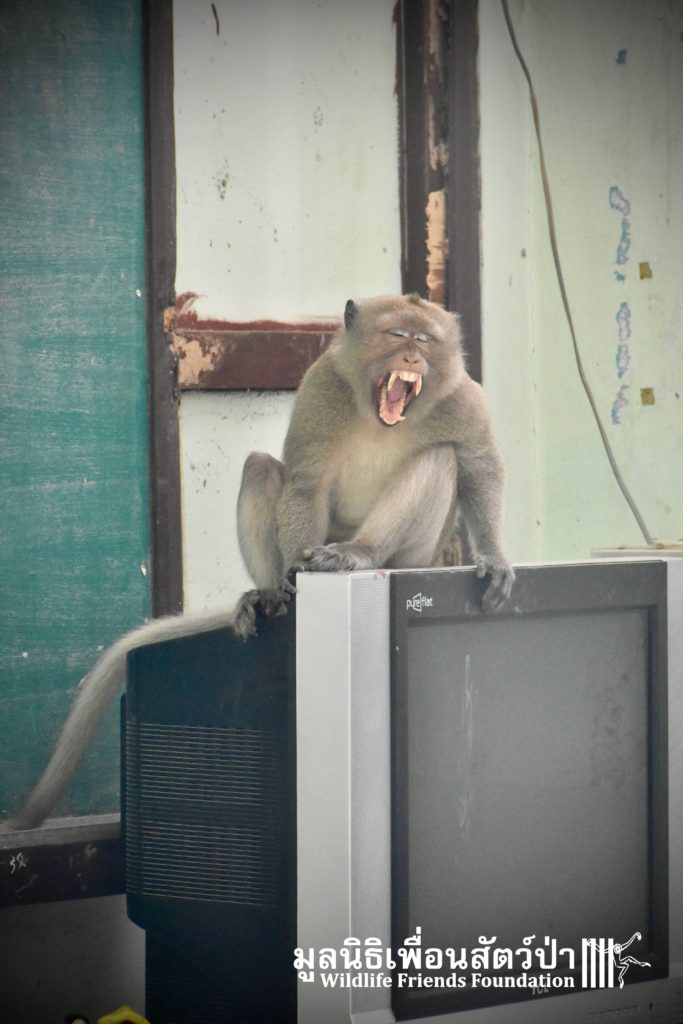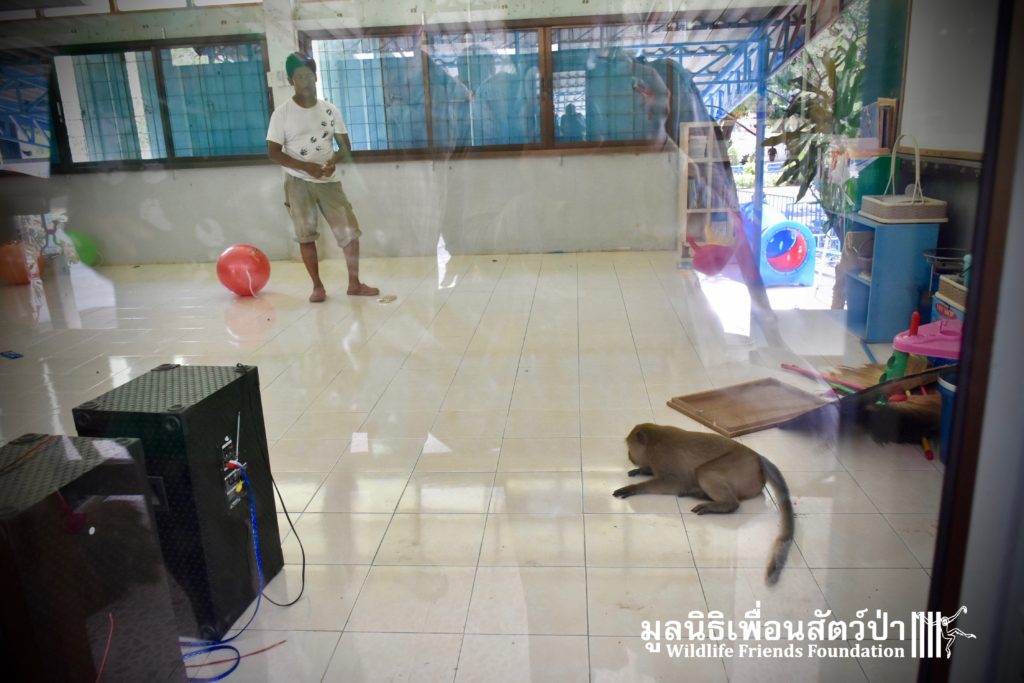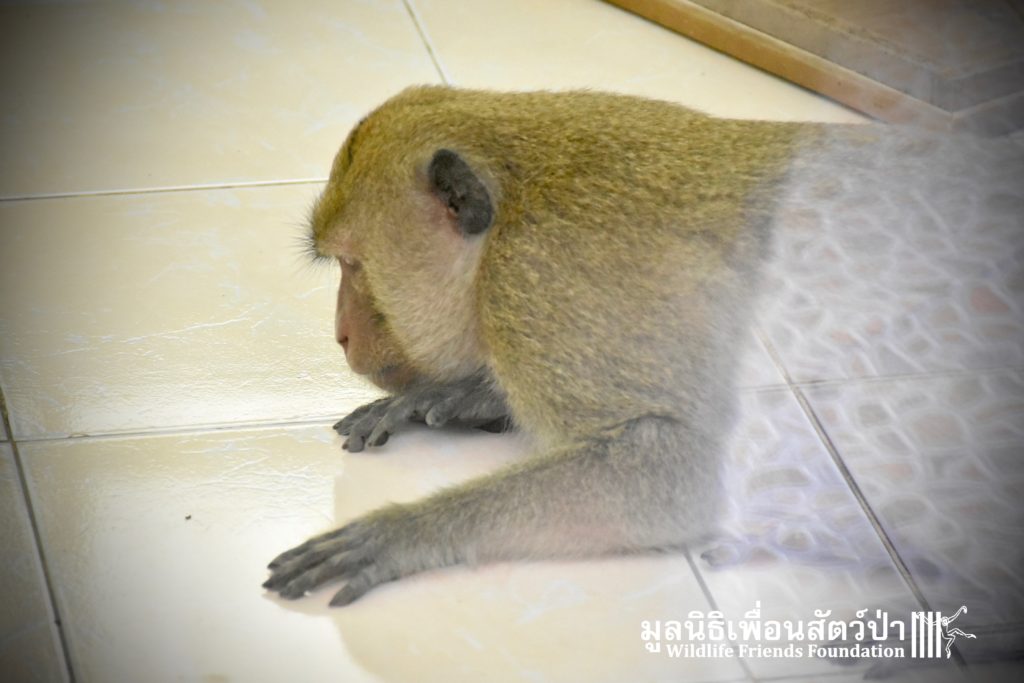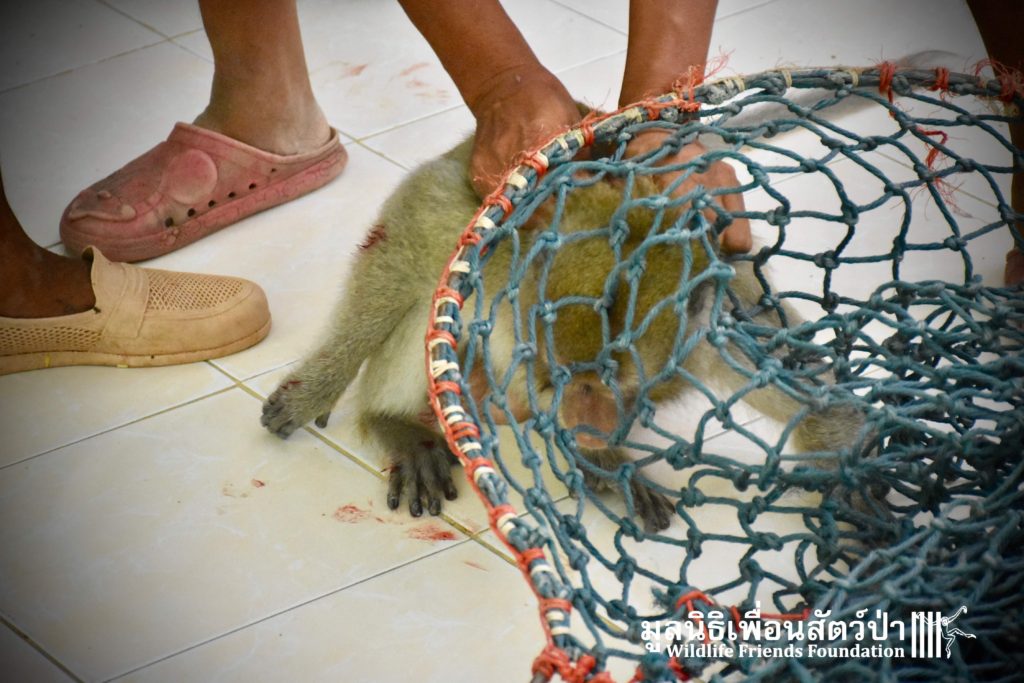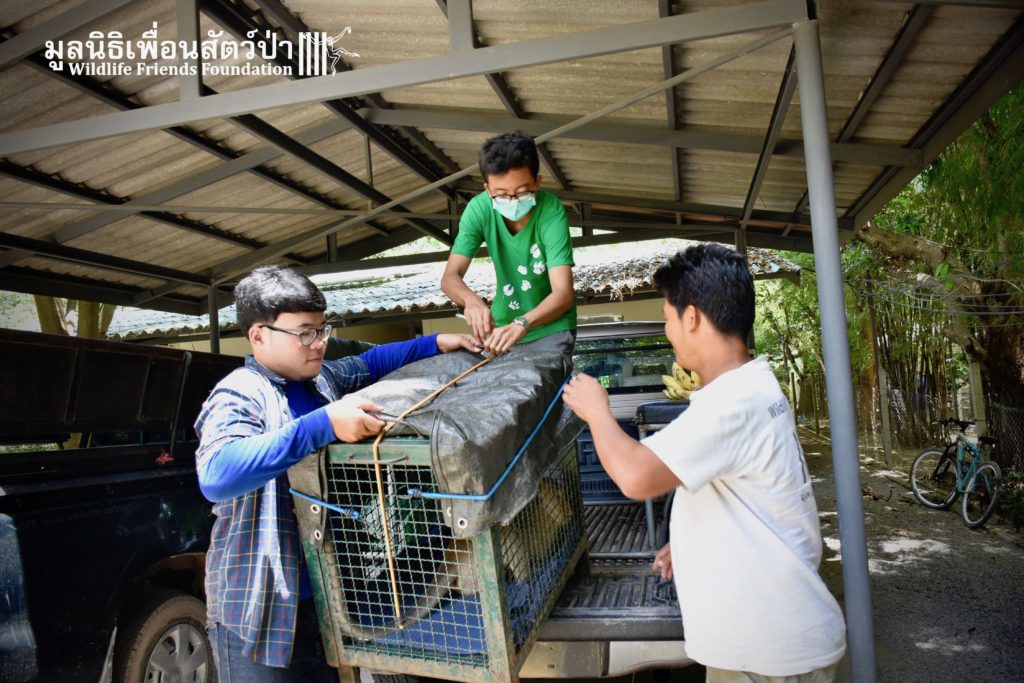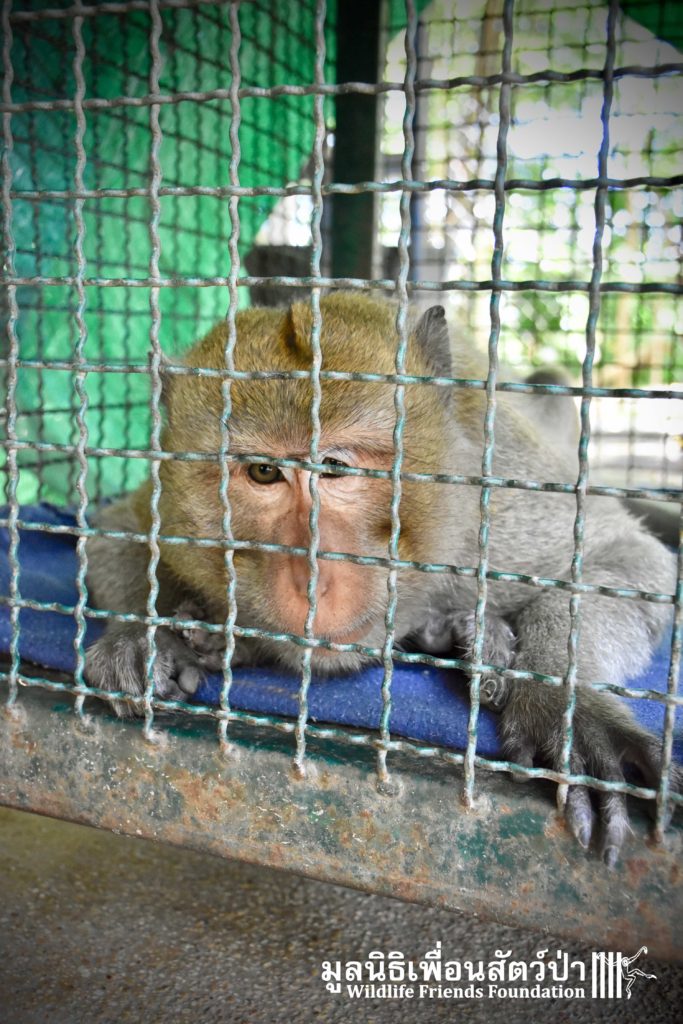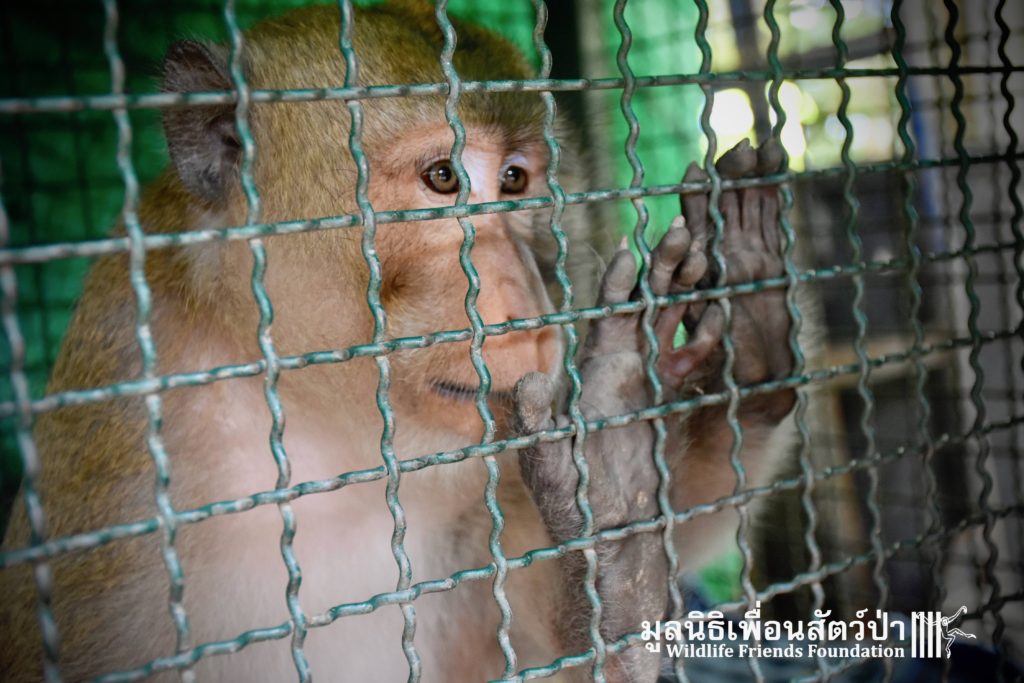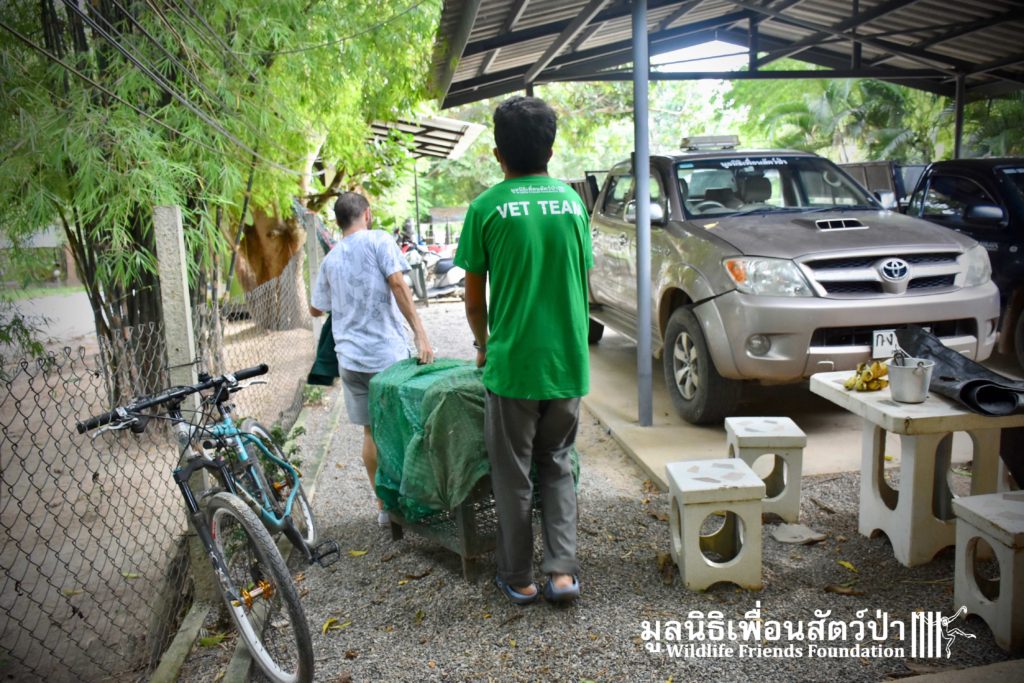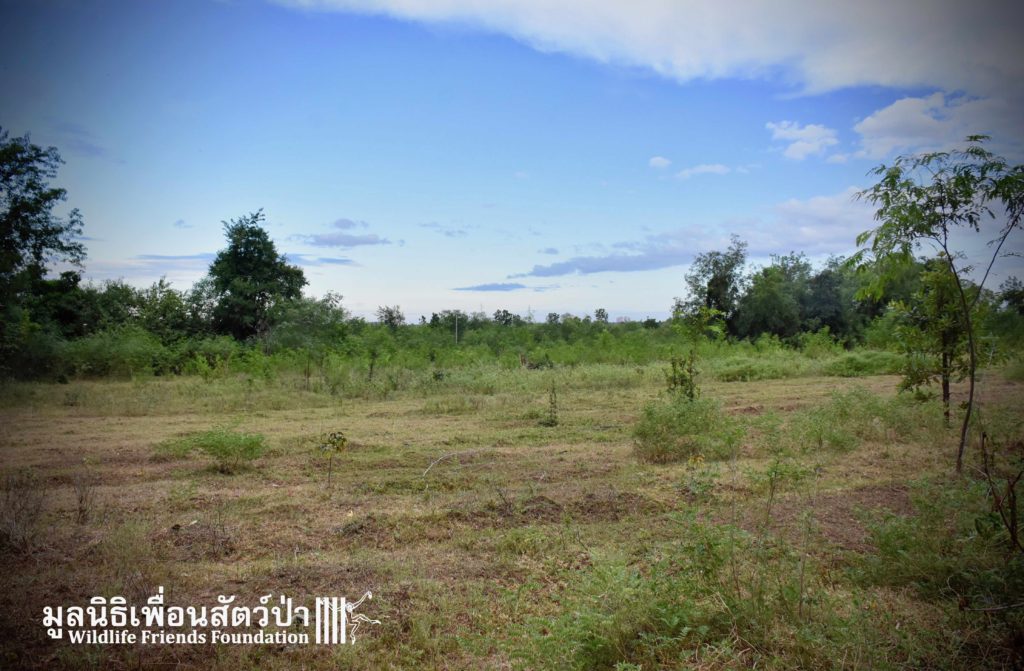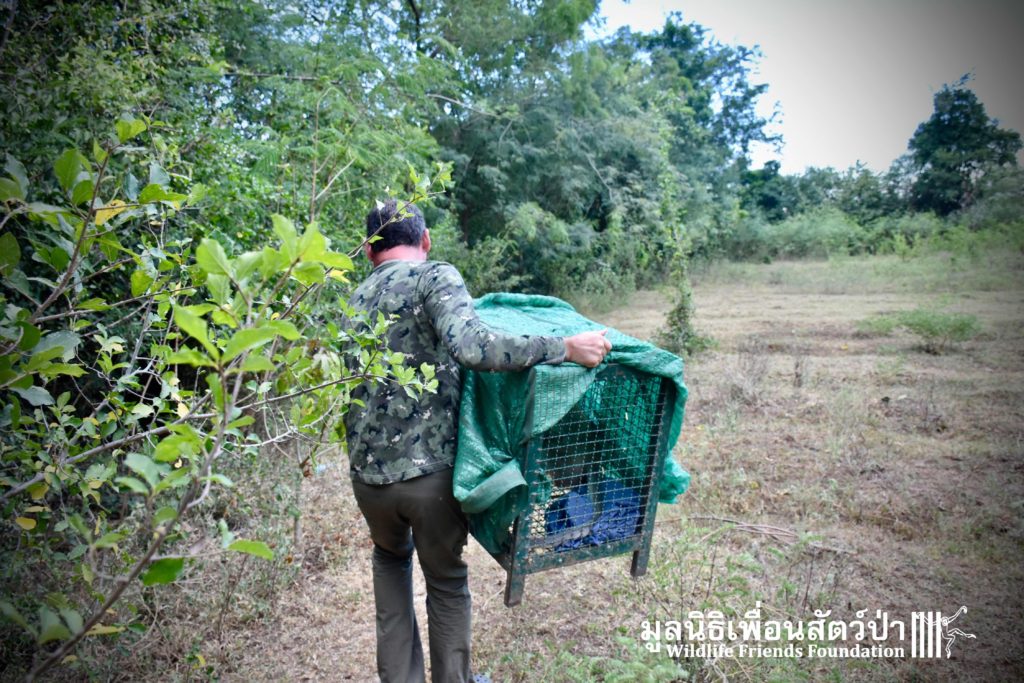Our team rescued a wild long-tailed macaque who had been struck by a car. He has severe injuries but our vets are doing everything possible
Back to School!!!
A few days ago, the WFFT Wildlife Rescue Team received a phone call from a local primary school about a rogue male long-tailed macaque (Macaca fascicularis) sneaking around the children and stealing food. He spent most of the time in the tallest tree within the school grounds, this made his capture almost impossible. He was still venturing down to eat when he was given fruit by the teachers and pupils. It seems that he had lost his way and felt the school was a good new home. The decision was made to capture him and relocate to a safe area close by, where other monkeys live. The macaque had been locked into a classroom yesterday by the school staff after he went started to steal food from the students. He was brought to the WFFT Wildlife Hospital for a check health check, and was taken to a protected forest area in the afternoon. We hope this young guy stays far from human harm.
The long-tailed macaque is listed as Least Concern (LC) by the IUCN Red list of Threatened Species, in view of its wide distribution, presumed large population, tolerance of a broad range of habitats, occurrence in a number of protected areas. Habitat loss and degradation due to human encroachment, pose the biggest threat to all macaque species. They are regularly persecuted as pests. Increasing competition between macaques and humans due the increase in need of land for agriculture and other human activities is the foremost reason that macaques are persecuted as pests. Hostile encounters with macaques are common in urban areas due to the active promotion of their presence for spiritual and entertainment purposes by provisioning food for the macaques. We (humans) both promote population growth through the provision of food and the protection habitat, and on the other hand we hinder it through the continued fragmentation of habitat, capture and exportation for research, and the pet-trade.

